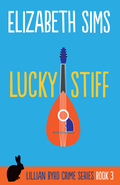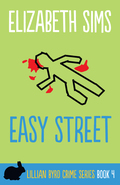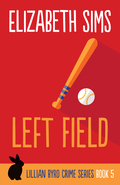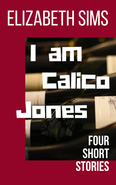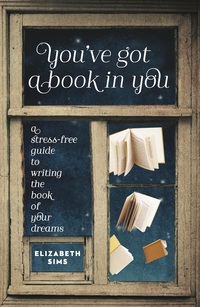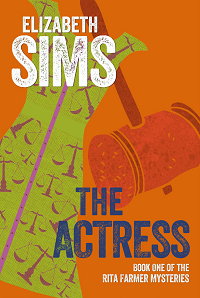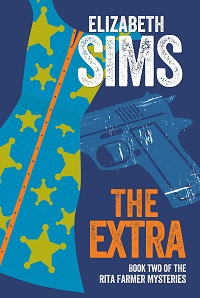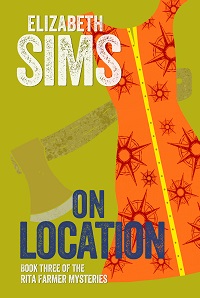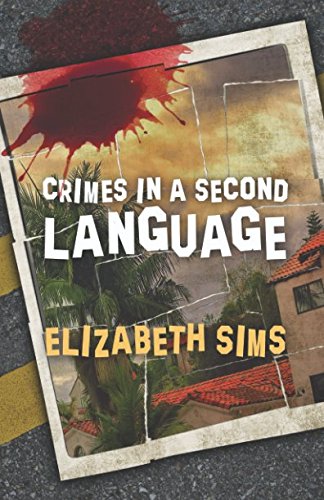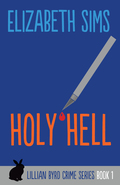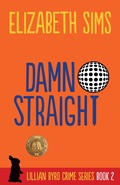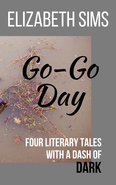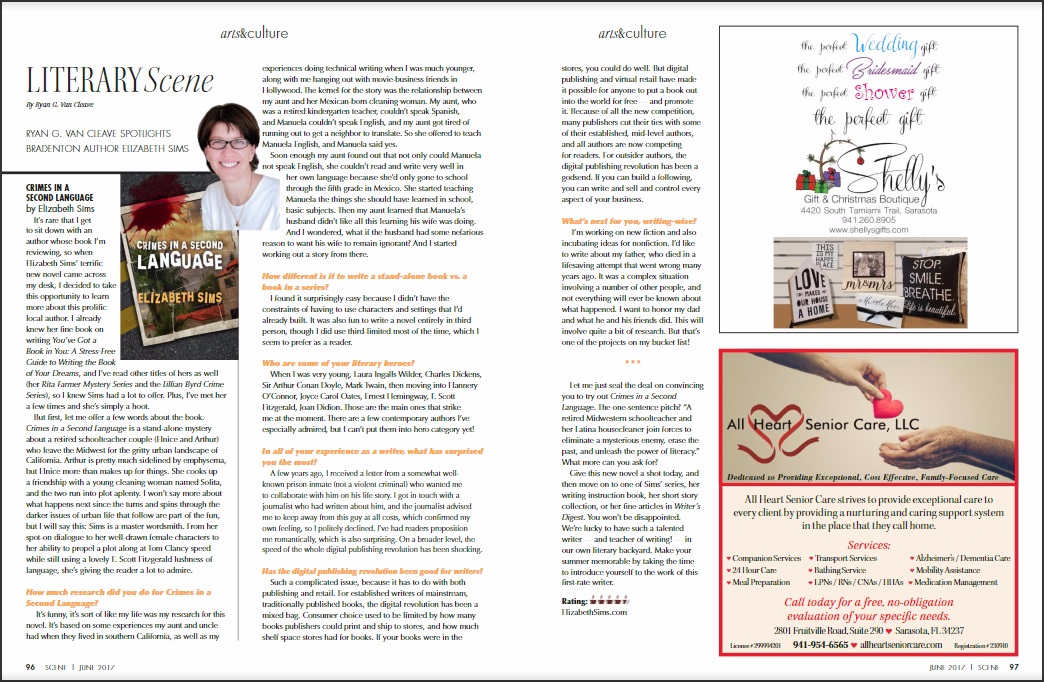
interview
with Elizabeth Sims
Scene Magazine
Ryan G. Van Cleave spotlights Elizabeth Sims - The Literary Scene
Crimes in a Second Language
It's rare that I get to sit down with an author whose book I'm reviewing, so when Elizabeth Sims' terrific new novel came across my desk, I decided to take this opportunity to learn more about this prolific local author. I already knew her fine book on writing You've Got a Book in You: A Stress-Free Guide to Writing the Book of Your Dreams, and I've read other titles of hers as well (her Rita Farmer Mystery Series and the Lillian Byrd Crime Series), so I knew Sims had a lot to offer. (Plus I've met her a few times and she's simply a hoot.)
But first, let me offer a few words about the book. Crimes in a Second Language is a stand-alone mystery about a retired schoolteacher couple (Elnice and Arthur) who leave the Midwest for the gritty urban landscape of California. Arthur is pretty much sidelined by emphysema, but Elnice more than makes up for things. She cooks up a friendship with a young cleaning woman named Solita, and the two run into plot aplenty. I won't say more about what happens next since the turns and spins through the darker issues of urban life that follow are part of the fun, but I will say this: Sims is a master wordsmith. From her spot-on dialogue to her well-drawn female characters to her ability to propel a plot along at Tom Clancy speed while still using a lovely F. Scott Fitzgerald lushness of language, she's giving the reader a lot to admire.
RVC: How much research did you do for Crimes in a Second Language?
ES: It's funny, it's sort of like my life was my research for this novel. It's based on some experiences my aunt and uncle had when they lived in southern California, as well as my experiences doing technical writing when I was much younger, along with me hanging out with movie-business friends in Hollywood. The kernel for the story was the relationship between my aunt and her Mexican-born cleaning woman. My aunt, who was a retired kindergarten teacher, couldn't speak Spanish, and Manuela couldn't speak English, and my aunt got tired of running out to get a neighbor to translate. So she offered to teach Manuela English, and Manuela said yes.
Soon enough my aunt found out that not only could Manuela not speak English, she couldn't read and write very well in her own language because she'd only gone to school through the fifth grade in Mexico. She stared teaching Manuela other things she should have learned in school, basic subjects. Then my aunt learned that Manuela's husband didn't like all this learning his wife was doing. And I wondered, what if the husband had some nefarious reason to want his wife to remain ignorant? And I started working out a story from there.
RVC: How different is it to write a stand-alone book vs. a book in a series?
ES: I found it surprisingly easy because I didn't have the constraints of having to use characters and settings that I'd already built. It was also fun to write a novel entirely in third person, though I did use third-limited most of the time, which I seem to prefer as a reader.
RVC: Who are some of your literary heroes?
ES: When I was very young, Laura Ingalls Wilder, Charles Dickens, Sir Arthur Conan Doyle, Mark Twain, then moving into Flannery O'Connor, Joyce Carol Oates, Ernest Hemingway, F. Scott Fitzgerald, Joan Didion. Those are the main ones that strike me at the moment. There are a few contemporary authors I've especially admired, but I can't put them into hero category yet!
RVC: In all of your experience as a writer, what has surprised you the most?
ES: A few years ago, I received a letter from a somewhat well-known prison inmate (not a violent criminal) who wanted me to collaborate with him on his life story. I got in touch with a journalist who had written about him, and the journalist advised me to keep away from this guy at all costs, which confirmed my own feeling, so I politely declined. I've had readers proposition me romantically, which is also surprising. On a broader level, the speed of the whole digital publishing revolution has been shocking.
RVC: Has the digital publishing revolution been good for writers?
ES: Such a complicated issue, because it has to do with both publishing and retail. For established writers of mainstream, traditionally published books, the digital revolution has been a mixed bag. Consumer choice used to be limited by how many books publishers could print and ship to stores, and how much shelf space stores had for books. If your books were in the stores, you could do well. But digital publishing and virtual retail have made it possible for anyone to put a book out into the world for free-and promote it. Because of all the new competition, many publishers cut their ties with some of their established, mid-level authors, and all authors are now competing for readers. For outsider authors, the digital publishing revolution has been a godsend. If you can build a following, you can write and sell and control every aspect of your business.
RVC: What's next for you writing-wise?
ES: I'm working on new fiction and also incubating ideas for nonfiction. I'd like to write about my father, who died in a lifesaving attempt that went wrong many years ago. It was a complex situation involving a number of other people, and not everything will ever be known about what happened. I want to honor my dad and what he and his friends did. This will involve quite a bit of research. But that's one of the projects on my bucket list!
***
Let me just seal the deal on convincing you to try out Crimes in a Second Language. The one-sentence pitch? "A retired Midwestern schoolteacher and her Latina housecleaner join forces to eliminate a mysterious enemy, erase the past, and unleash the power of literacy." What more can you ask for?
Give this new novel a shot today, and then move on to one of Sims' series, her writing instruction book, her short story collection, or her fine articles in Writer's Digest. You won't be disappointed. We're lucky to have such a talented writer-and teacher of writing!-in our own literary backyard. Make your summer memorable by taking the time to introduce yourself to the work of this first-rate writer.
